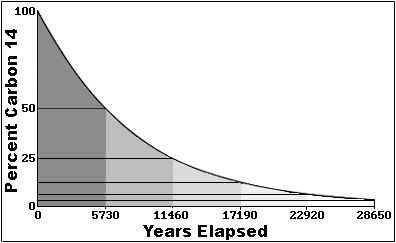I have done some research into radiometric and carbon dating but I have been unable to find an answer or explanation to my challenge on that. I wonder if anybody here can point me in the right direction or possibly answer it.
The first is that it seems most if not all of these dating methods rely on measuring decay. Unless I am mistaken, decay is not equal everywhere. If I leave meat outside will it decay at the same rate as if it's frozen? Or if there is no air and oxygen available?
I went to the catacombs in France and saw many bones that were practically dust, after only 200 years, there is no way they will last millions of years. It seems there are so many variables that will accelerrate or slow decay that it would be far too unreliable as a means of dating the age of something.
That is the first part of the question, the 2nd part is this.....
Try to take this concept and apply it on a grander scale. Rocks are made of minerals, elements, etc, and so are we. If copper that I ate becomes a part of my body, does that change the age of the copper or do I become as old as that copper is?
It's also claimed the oldest rock/elements found on the Earth are 4.5 billion years old, so that is how old the Earth is. Does that mean that out of thin air the Earth appeared? What if those rocks and elements were floating in space from 4.5 billion years ago yet they clustered and gathered and formed the Earth only 1 billion or 1 million years ago? Is there more to the dating techique that specifies when they became part of the Earth?
I would think these questions have already been addressed but can't find the answers.



